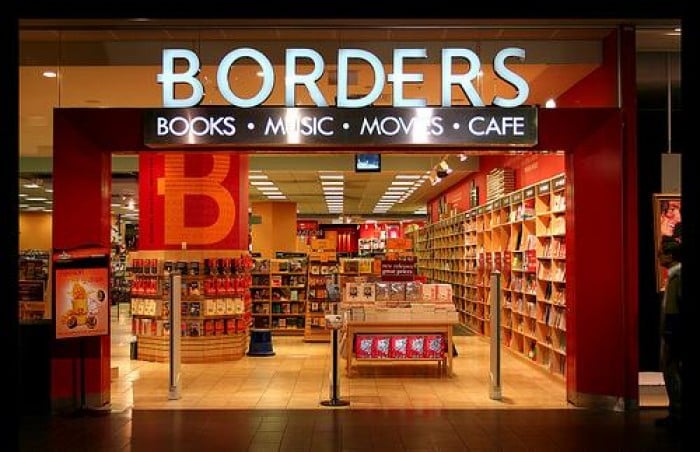
Earlier this summer, the final chapter was closed on the Borders bookstore chain. It led to all sorts of conjectures as to why, and what it means for the future of bookstores and readers. Some said it was ebooks, while others pointed out Borders had a long history of mismanagement and neglect. Businessweek has a good overview of the history of Borders, and some of the reasons why it died a sad death (spoiler alert: it wasn’t ebooks).
What I found most interesting was this commentary from Borders’ last CEO, Mike Edwards:
Edwards says that by the time he became CEO in 2010, Borders had already lost “the founders’ DNA, why the company was successful in the first place.” He blames the 1992 acquisition by Kmart—which he feels ran Borders like a general merchandising company—and a three-year stock buyback that began in 2005 and cost the company $600 million. (Kmart spun off the bookseller in 1995, when Borders went public.) No contacted analysts thought there was anything improper in the stock buyback—online sales had seemed to plateau at the time, and the company had generated more money than it did in each of the preceding five years. But the book industry runs on an ancient credit system, with booksellers at any moment indebted to publishers for more than the value of the books on their shelves. (At the time of its bankruptcy, Borders owed Hachette $36.9 million, Simon & Schuster $33.8 million, Random House $33.5 million, and HarperCollins $25.8 million, to name just a few of its publishing creditors.) In arrears and undercapitalized even in good times, Borders lost with the stock buyback the slim buffer it had. Edwards says the company was too saddled with debt to navigate properly. It had no capital to invest in online retailing or to separate its good stores from its bad ones.
I could not agree more with this analysis. Borders was a bookstore, but they were run like the unholy mix of a big box retailer and a small independent bookstore. The result was a chaotic chain that couldn’t decide from one day to the next if it wanted to sell books or plastic pig slingshots. Businessweek also points out that where Borders excelled was in their backlist, but no one cared (or marketed) that we carried more titles than B&N. Sadly, Borders simply couldn’t find their way, and ebooks were only a small part of that failure.
But here’s the thing: people still love bookstores. And they loved Borders. Borders mismanaged themselves into bankruptcy, and from the ashes, new bookstores are filling the void. I’ve said before that the death of Borders is an advantage for independent bookstores and Businessweek conjectures that’s the case, at least in Nashville, TN. Hopefully elsewhere too!
Have you seen new independents fill the void where Borders once lived? Or are you too busy playing with your new Kindle to find a brick and mortar bookstore?
